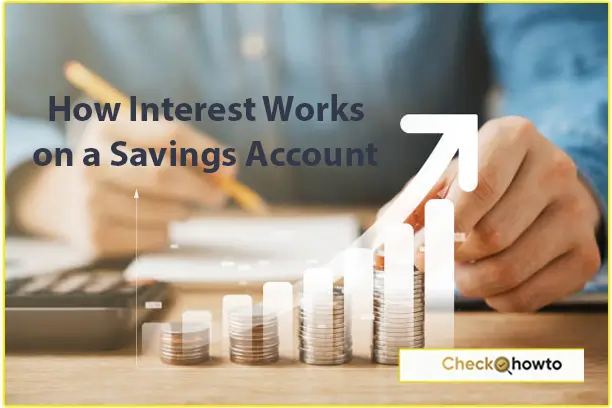With more people opting to manage their money through a smartphone or computer, the question on many minds is: Are online banks safe? When I first considered switching to an online bank, I had the same concern, and you might be feeling the same way right now. Let’s explore the ins and outs of online banking security and whether it’s truly a safe option for your hard-earned money.
How Online Banks Work?
It’s important to understand how online banks function. Unlike traditional banks that have physical branches you can visit, online banks operate entirely through digital platforms, usually apps or websites. This might make you wonder if the lack of a physical presence somehow makes them less secure.
In reality, online banks are designed to cater to the digital landscape. Everything you would expect from a traditional bank, like opening accounts, transferring money, or even applying for loans, is available with just a few clicks or taps. Since they don’t have physical locations to maintain, online banks often offer higher interest rates on savings accounts and lower fees, which can be appealing to anyone looking to make their money work harder. But with the convenience of digital banking comes the pressing issue of security.
Related; What Is Online Banking? Definition and How It Works
Are Online Banks Regulated?
One of the key factors in determining the safety of online banks is regulation. It might surprise you to learn that most online banks are regulated just like their traditional counterparts. They are typically insured by the FDIC (Federal Deposit Insurance Corporation) in the U.S., which means your deposits are protected up to $250,000, just like with a traditional bank.
So if you’re worried about losing your money because the bank goes under, you can breathe a little easier. FDIC insurance covers you whether your bank is online or brick-and-mortar. In many countries, similar deposit insurance schemes exist, ensuring that customers’ funds are protected even in the event of a bank failure.
I remember feeling much more at ease when I discovered that many online banks have the same level of regulatory oversight as traditional banks. So, if you’ve been holding back from online banking due to concerns about regulations, it’s worth knowing that these institutions are often just as accountable as the ones with physical branches.
How Do Online Banks Keep Your Information Secure?
You might be wondering how online banks protect your personal information and keep your account safe. After all, with everything happening over the internet, isn’t it easier for hackers to get a hold of your data?
The good news is that online banks invest heavily in advanced security technologies to safeguard your information. Here are some of the key security features you can expect:
1. Encryption
Encryption is the process of converting information into code to prevent unauthorized access. Think of it as a digital lock that can only be opened with the right key. Most online banks use 256-bit encryption, which is a highly advanced form of data security. It ensures that even if hackers intercept your data, they won’t be able to read or use it.
When I first learned about encryption, I was amazed at how secure it makes the whole process. If you’re like me and care about your financial information being protected, knowing that online banks use encryption is a huge relief.
2. Two-Factor Authentication (2FA)
Many online banks use two-factor authentication (2FA) to add an extra layer of protection. This means that even if someone gets a hold of your password, they would still need another piece of information—like a code sent to your phone or a fingerprint scan—to access your account.
I personally feel more secure with 2FA in place, as it ensures that even if my password is compromised, my account isn’t automatically at risk. If you haven’t used 2FA before, it’s easy to set up and can make a big difference in your peace of mind.
3. Account Monitoring and Alerts
Another key security measure is real-time account monitoring. Online banks often have systems in place that monitor your account for any unusual activity, like large withdrawals or transactions from unfamiliar locations. If anything seems off, they’ll notify you immediately through text, email, or an app notification.
When I started using online banking, I appreciated these alerts because they gave me an added sense of control. You can set up alerts for specific types of transactions, so if anything suspicious happens, you’ll know right away.
4. Secure Password Requirements
One of the simplest, yet most effective, security measures is requiring strong passwords. Online banks often enforce strict guidelines when you create a password. You’ll be asked to include a combination of letters, numbers, and special characters, which makes it harder for hackers to guess your password.
You might find it a little annoying to come up with a strong password, but I can tell you from personal experience that it’s worth the extra effort. Using a secure password manager can help you keep track of all your passwords without the hassle.
See; What Is Two-Factor Authentication (2FA)? How It Works and Example
What About Cyber Attacks?
Cyberattacks are a real concern in the digital age. Every time you hear about a company experiencing a data breach, you might start questioning whether online banking is truly safe. While it’s true that cyber threats exist, online banks are constantly updating their security protocols to stay one step ahead of potential attacks.
One thing that reassured me is that online banks often have teams of cybersecurity experts working around the clock to monitor and prevent hacking attempts. They also conduct regular security audits to identify any weaknesses and fix them before they become a problem.
Additionally, online banks are required by law to notify customers immediately if a data breach does occur. This transparency ensures that you can take action, such as changing your password or enabling additional security features, if your account is ever compromised.
Risks of Using Online Banks
While online banks come with robust security measures, it’s important to understand that no system is 100% foolproof. There are still risks involved, and being aware of them can help you take steps to protect yourself.
1. Phishing Scams
One of the most common risks is phishing, where scammers try to trick you into giving up your personal information by pretending to be your bank. They might send you an email that looks like it’s from your bank, asking you to click a link and enter your account details. These scams can be hard to spot, but being cautious can prevent you from falling victim.
Whenever I receive an email from my bank, I make sure to double-check the sender’s email address and never click on links unless I’m absolutely sure they’re legitimate. You can always visit the bank’s website directly to verify any suspicious communications.
2. Password Vulnerabilities
If you use weak passwords or reuse the same password across multiple accounts, you’re at greater risk of being hacked. This is true for both online and traditional banks, but because everything in online banking happens digitally, it’s especially important to have strong, unique passwords.
I recommend changing your password regularly and using a password manager to generate and store complex passwords. This way, you can reduce the likelihood of someone gaining unauthorized access to your account.
3. Device Security
The security of your devices is also crucial when using online banking. If your smartphone or computer is compromised with malware, it could give hackers a way to access your bank account. Always keep your devices updated with the latest security patches and avoid downloading apps or software from untrusted sources.
One habit I’ve gotten into is using a virtual private network (VPN) when accessing my online bank account over public Wi-Fi. This adds an extra layer of protection by encrypting my internet connection, making it harder for hackers to intercept my data.
See; What is a Virtual Private Network (VPN)?
How to Protect Yourself While Using Online Banks
While online banks work hard to protect your information, there are a few steps you can take to enhance your own security.
1. Keep Your Software Updated
Always ensure that your phone and computer’s operating systems, as well as your bank’s mobile app, are updated to the latest version. These updates often include security patches that fix vulnerabilities.
2. Use 2FA
As mentioned earlier, using two-factor authentication adds an extra layer of security to your account. Even if someone gets a hold of your password, they would still need a second form of identification to access your account.
3. Monitor Your Account Regularly
Even with all the security measures in place, it’s still important to check your account regularly. Make it a habit to log in and review your transactions to ensure everything looks correct.
I find that setting up automatic alerts for any large transactions or changes to my account helps me stay on top of things without having to constantly check my balance.
4. Be Wary of Phishing Scams
As I mentioned earlier, phishing scams are one of the biggest threats to online banking security. Always be cautious of unsolicited emails or texts asking for personal information, and never click on suspicious links.
Conclusion
So, are online banks safe? Based on my experience and research, the answer is generally yes, as long as you take the necessary precautions. Online banks use advanced security measures like encryption, two-factor authentication, and real-time monitoring to protect your information. They’re also regulated by the same entities that oversee traditional banks, meaning your deposits are typically insured up to $250,000.
However, it’s essential to stay vigilant and protect your account by using strong passwords, enabling extra security features, and being cautious of potential scams. By following these guidelines, you can confidently enjoy the convenience and benefits that online banking offers.
In the end, the safety of your online bank account is a shared responsibility between you and the bank. When both parties do their part, online banking can be just as secure, if not more secure, than traditional banking.



